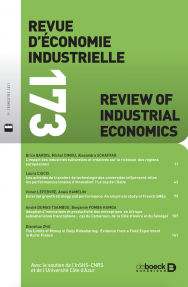
| Author(s) |
Dianzhuo ZHU |
| Publication type | Research Paper |
| Reference | Zhu, D. (2021). The Limits of Money in Daily Ridesharing: Evidence from a Field Experiment in Rural France. Revue d'économie industrielle, 173, 161-202. https://doi.org/10.4000/rei.9984 |
Carried along by the wave of the sharing economy, car-sharing has become a fast-growing sector in recent years, offering the potential to meet many of the environmental and societal challenges associated with everyday mobility. The difficulty in democratising car-sharing remains in mobilising drivers and passengers to use it. Understanding users' motivations and barriers is vital to the development of this sector. We have conducted a field experiment with a French car-sharing start-up to understand drivers' motivations. More specifically, we want to measure whether increasing the monetary incentive can have crowding-out or crowding-in effects on intrinsic motivations. We have recruited testers to launch carpooling requests as passengers. Drivers can see these requests on their way and decide in real time whether they want to stop or not. We randomly assign two levels of compensation to each journey, €3 or €7. The compensation is displayed when the carpool request is made. After the journey, drivers can decide whether or not to cash in. If they do cash in, we invite them to play a "dictator game" with a charity as the beneficiary.
In total, we collected 128 observations over the summer of 2017. The results show that drivers behave in a similar way when it comes to collecting and sharing compensation, whether it is 3 euros or 7 euros. We can therefore deduce a similar distribution of motivation profiles in the two groups. Increasing the monetary incentive had neither a crowding-out nor a crowding-in effect. Our results highlight implications for car-sharing policy. They suggest that, instead of focusing solely on monetary incentives, decision-makers in both government and business could consider strategies that would encourage intrinsic motivations among users in order to encourage their participation in carpooling, within the same budgetary framework or even less.
Classification JEL : C93, D91, R41.

























